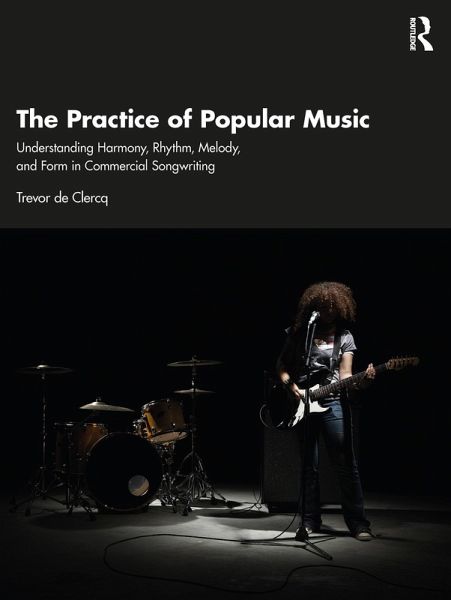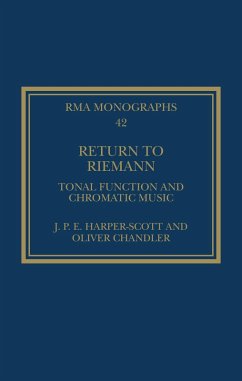
The Practice of Popular Music (eBook, PDF)
Understanding Harmony, Rhythm, Melody, and Form in Commercial Songwriting
Versandkostenfrei!
Sofort per Download lieferbar
42,95 €
inkl. MwSt.
Weitere Ausgaben:

PAYBACK Punkte
21 °P sammeln!
The Practice of Popular Music is a music theory and musicianship textbook devoted to explaining the organization of contemporary popular music styles such as pop, rock, R&B, rap, and country. Rooted in recent research showing that the structure of popular music differs from classical music in important ways, this textbook offers an approach to teaching music theory that is fully oriented around popular and commercial genres.Beginning with fundamentals and requiring no previous training in music theory or notation, this book eventually guides the reader through a range of advanced topics, inclu...
The Practice of Popular Music is a music theory and musicianship textbook devoted to explaining the organization of contemporary popular music styles such as pop, rock, R&B, rap, and country. Rooted in recent research showing that the structure of popular music differs from classical music in important ways, this textbook offers an approach to teaching music theory that is fully oriented around popular and commercial genres.
Beginning with fundamentals and requiring no previous training in music theory or notation, this book eventually guides the reader through a range of advanced topics, including chromatic mixture, secondary chord function, complex time signatures, and phrase organization. Each chapter develops concepts in tandem with aural comprehension, and the included exercises balance written tasks with listening activities. A companion website provides links to playlists of the music discussed in the book.
With an innovative approach designed to broaden the reach of music theory coursework to a wide range of students, including non-majors and those in modern music degree programs such as audio engineering, songwriting, and music business, this textbook enables readers to gain a deep understanding of music theory in the context of popular music.
Beginning with fundamentals and requiring no previous training in music theory or notation, this book eventually guides the reader through a range of advanced topics, including chromatic mixture, secondary chord function, complex time signatures, and phrase organization. Each chapter develops concepts in tandem with aural comprehension, and the included exercises balance written tasks with listening activities. A companion website provides links to playlists of the music discussed in the book.
With an innovative approach designed to broaden the reach of music theory coursework to a wide range of students, including non-majors and those in modern music degree programs such as audio engineering, songwriting, and music business, this textbook enables readers to gain a deep understanding of music theory in the context of popular music.
Dieser Download kann aus rechtlichen Gründen nur mit Rechnungsadresse in A, B, BG, CY, CZ, D, DK, EW, E, FIN, F, GR, HR, H, IRL, I, LT, L, LR, M, NL, PL, P, R, S, SLO, SK ausgeliefert werden.













